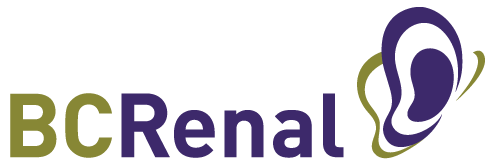On Monday, September 30, BC Renal will honour the National Day for Truth and Reconciliation — a day to reflect upon the history of colonialism on Turtle Island (North America), to uplift Indigenous voices, and to reaffirm our commitment to reconciliation and Indigenous health and safety. In doing so, it is imperative that we recognize colonialism not as a chapter from our past, but rather an ongoing process. This legacy of trauma continues to harm the health and wellness of generations of First Nations, Metis, and Inuit peoples, to deny Indigenous communities their right to sovereignty and self determination, and to perpetuate inequities between Indigenous and non-Indigenous Canadians.
Poorer health outcomes and barriers to accessing care are prevalent for Indigenous peoples in the health-care system, and they are upheld, in large part, by a reliance on Western healing methods. Advancing culturally safe, holistic care that centres the needs and wishes of Indigenous communities is key to reconciliation — as is the work of non-Indigenous Canadians to disrupt colonial assumptions and practices. True reconciliation is about more than just a statement or acknowledgement of harm: it requires active unlearning, critical self-reflection and, above all, a dedication to change. Read on to learn more about what BC Renal is doing to support culturally safe care and fight systemic racism in the kidney care system.
- Advancing cultural safety and humility, and creating a health system free of bias and Indigenous-specific racism
- Closing the health gap between Indigenous and non-Indigenous people with or at risk of chronic kidney disease in BC, resulting in improved health outcomes and experience for Indigenous peoples
- Embedding Indigenous Wellness in all projects undertaken by BC Renal and its provincial committees.
BC Renal embraces the Coast Salish Teachings gifted to PHSA by Knowledge Keeper Shane Pointe, Sulksun. Many of our programs and initiatives to improve kidney care for Indigenous peoples in BC incorporate these valuable teachings. Here are three examples of teachings and how and where they are being applied:
Medicine is all things. The geography, ecosystem, water and all other living beings. As human beings we can choose, with intent, to be “good medicine” every day.
Where it’s applied:
- Kidney Check: Identifying kidney disease and diabetes in Indigenous communities
- This screening program provides kidney, diabetes and blood pressure checks to rural and remote Indigenous communities in BC, and works with individuals to develop personalized kidney health plans. Kidney Check is a collaboration between Can-SOLVE CKD Network, First Nations Health Authority, BC Renal and health authority renal programs.
- Kidney Indigenous Collaborate Group
- BC Renal is currently working with the First Nations Health Authority, Can-SOLVE CKD Network, Kidney Foundation of Canada, BC and Yukon Branch, and BC Transplant on a collaborative space to advance kidney health and wellness for Indigenous peoples.
You need to say the truth all the time. How you act and show up must be truthful. We need to be truthful in our work and we need our truth to be heard and not denied. We all must not deny the truth of the history and we must remain committed to addressing it.
Where it’s applied: - Kidney Community Conversations
- BC Renal is partnering with the Kidney Foundation of Canada, BC and Yukon Branch to host a series of Kidney Community Conversations, the first in Prince George on September 26th. These open sessions will invite members from the Indigenous community affected by kidney disease, as well as their care partners, to share what wellness means to them and to ask questions about kidney disease.
Open your hearts and minds to what is being taught to you. When you are open you are able to do your best.
Where it’s applied: - San’yas Core Indigenous Cultural Safety Health Training
- BC Renal requires all leaders, staff, and provincial committee chairs and vice chairs to complete this training, which covers the history of colonialism in Canada (and in the health-care system), and encourages participants to reflect on their biases, prejudices, and presumptions. BC Renal supports interested patient partners and affiliated researchers to complete this training as well.
- San’yas Bystander To Ally Training
- BC Renal requires all managerial staff (i.e., directors, managers and Project Managers) complete this advanced training — in addition to the San’yas Core Training — to develop practical skills in becoming more effective allies.
- Anti-Indigenous Racism Response Training
- BC Renal requires all staff and interested patient partners to complete this training.
- Land Acknowledgement Video and Webinar Learning Series
- BC Renal collaborated with the Can-SOLVE CKD network (including 10 Indigenous Knowledge Keepers from across Canada) to develop a set of webinars and a guidebook to support authentic, purposeful territorial land acknowledgements. Dissemination of this learning series is ongoing across the BC Renal network.
- Learning Pathway
- BC Renal continues to work with Indigenous patients, researchers and Knowledge Keepers in the Can-SOLVE CKD network on socializing the pathway to support ongoing journeys of looking, listening, learning and leading in health research among non-Indigenous and Indigenous researchers, policy makers and patient partners.
Please join us in reflecting on these teachings as we honour the National Day for Truth and Reconciliation.

